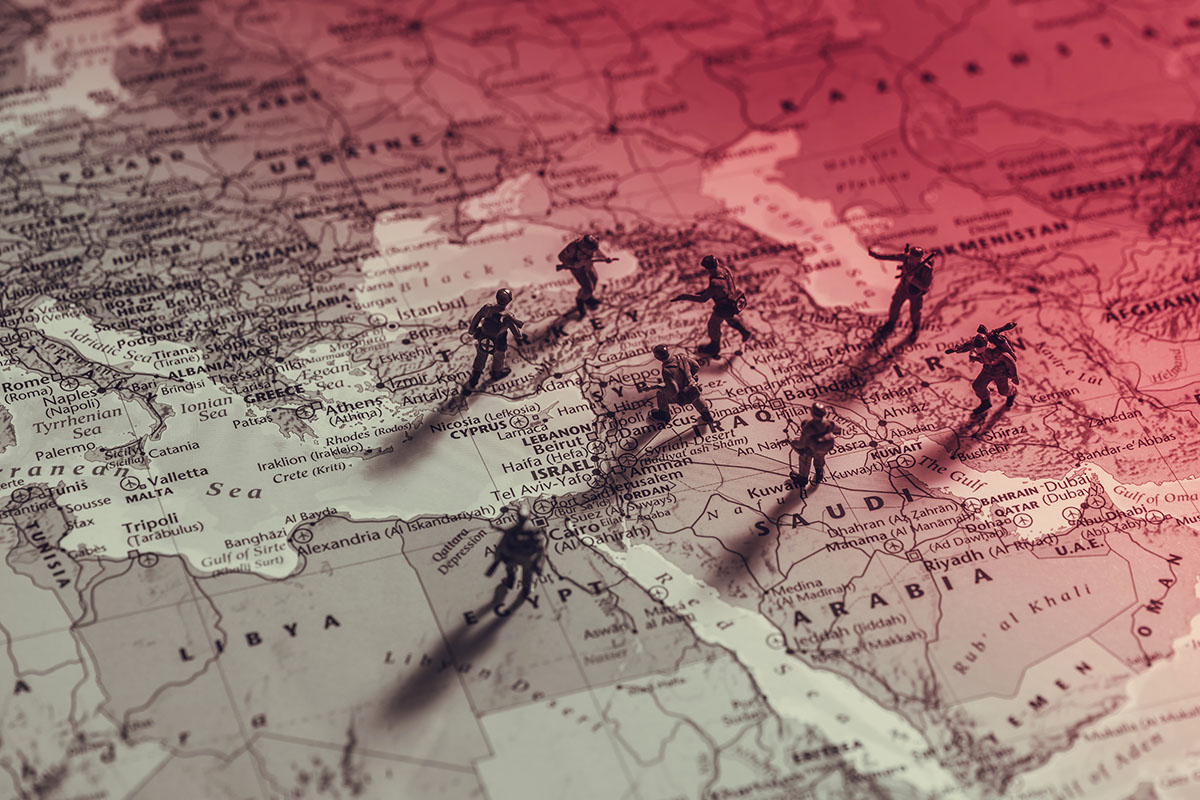The Middle East – How Western Powers unmade it?
March 31by Faseeh Abbas
The turmoil in the Middle East, a daily fixture in global news, can be traced back to historical decisions made by Western powers, particularly the British, in the aftermath of World War I. At the heart of this complex narrative lies the Sykes-Picot Agreement of 1915, where the Triple Entente divided the Ottoman Empire’s lands without regard for ethnic boundaries, primarily relying on former Ottoman provinces.
Following the end of World War I, the Treaty of Sèvres further exacerbated tensions by allocating significant portions of Eastern Anatolia to the Armenian people and establishing a Kurdish state. Parts of the Ottoman Empire were handed over to Greece and Italy, leaving the Turkish state in a precarious position. The subsequent Lausanne Treaty attempted to rectify the situation, but it overlooked the Kurdish people, who remain the largest stateless population across five countries, subject to discrimination.
The arbitrary demarcation of Mandatory Iraq during this period exacerbated ethnic fragmentation, creating a nation with Sunni Kurds in the north, Sunni Arabs in the center, and Shia Arabs in the south. The resultant instability, coupled with fears of a Shia Arab uprising and strategic concerns over oil-rich regions, set the stage for future conflicts. Shia Arabs of Iraq even revolted against the Sadam’s regime but always they were the target of massacre and genocides.
The French mandates, specifically in Lebanon and Syria, suffered from inaccuracies in demarcation. Lebanon was carved out as a separate state due to its Christian majority, though it also housed Shia, Sunni, and Druze Arabs, till to this day every sect face discrimination in the different phases of everyday life. Syria, on the other hand, was a patchwork of Sunni Arabs, Kurds, Shia Alawites, Maronite Christians, and Turks. The creation of the Hatay Republic in 1938, followed by its annexation by Turkey, remains a point of contention with Syria to this day.
Oil discoveries further heightened tensions, particularly in Iraq, where oil-rich areas were predominantly Shia Arab, and in Syria, where Sunni Muslim regions held significant resources. The Iran-Iraq War and the Gulf War erupted over disputes related to oil wealth and ethnic tensions, with the Khuzestan province’s Shia Arab population becoming a focal point.
The Palestine issue, rooted in the Balfour Declaration, saw Britain promising land to Jews after the Holocaust. The UN partition, favoring the Jewish population, led to conflict with Arab nations. The result was the displacement of Palestinians, the occupation of Gaza by Egypt, and the West Bank under Jordan’s control, while Israel claimed the remaining territory. The demographic shifts caused by the influx of Palestinian immigrants to Lebanon sparked the Lebanese Civil War and contributed to regional instability.
Gamel Abdel Nasser‘s rise and the spread of Nasserism further exacerbated tensions, culminating in proxy wars like the 1962-70 Yemen Civil War. The Six-Day War and the Yom Kippur War marked pivotal moments, with Egypt accepting Israel’s sovereignty in exchange for the return of the Sinai Peninsula.
The withdrawal of British forces from the Persian Gulf in the early 1970s allowed the United States to assume a prominent role in the region. Simultaneously, the enmity between Iran and Saudi Arabia escalated due to ideological differences and territorial disputes, notably in the ideology and the island of Bahrain.
In conclusion, the current state of the Middle East is deeply rooted in the arbitrary decisions made by Western powers a century ago. The disregard for ethnic boundaries and the strategic pursuit of resources have perpetuated conflicts and geopolitical tensions. While blame is often assigned to regional actors, acknowledging the impact of historical choices on the region’s present state is crucial for understanding and addressing the complex challenges it faces today.






